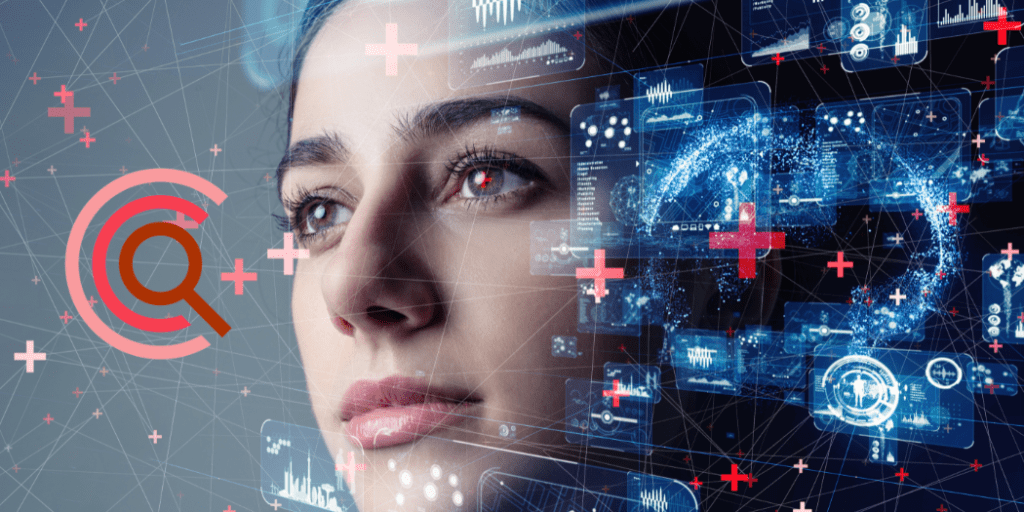Clearview AI, an American facial recognition company, has become a focal point of controversy due to its powerful software and expansive database.
Founded by Hoan Ton-That and Richard Schwartz, the company remained largely under the radar until late 2019, when reports emerged about its use by law enforcement.
Clearview AI’s technology matches faces to a database of over 20 billion images collected from the internet, including social media platforms.
This capability has proven helpful for various organizations but has also sparked significant concerns regarding privacy and ethical use.
As the company navigates a series of legal challenges and settlements, its practices continue to provoke debate about the balance between technological advancement and individual privacy rights.
Clearview AI
Clearview AI’s facial recognition technology is a sophisticated tool designed to match faces to an extensive database of images sourced from the Internet.
The company’s algorithm can identify individuals by comparing their faces against more than 20 billion images collected from various online sources, including social media applications.
This technology enables Clearview AI to provide robust facial recognition services to its clients, which include law enforcement agencies, government entities, and private organizations.
By utilizing this extensive database, the software can quickly and accurately match a given facial image with potential matches in its records. One of the significant aspects of Clearview AI’s technology is its reach and accuracy.

The vast number of images in its database allows for a high probability of finding a match, making it a valuable tool for identifying suspects, missing persons, and other individuals of interest.
Law enforcement agencies, in particular, have found this tool beneficial for solving crimes and apprehending suspects.
The sheer scale of the database and the sources from which the images are collected have raised significant privacy concerns. Critics argue that the indiscriminate scraping of pictures from social media and other websites without consent violates individuals’ privacy rights.
Despite these concerns, the technology continues to be used, highlighting the tension between the benefits of advanced surveillance tools and the need to protect personal privacy.
Major Legal Incidents
Clearview AI has faced several significant legal challenges due to its facial recognition technology and data practices. These incidents highlight the ongoing concerns about privacy violations and the legal ramifications for companies utilizing such technologies.
In 2020, Clearview AI was the victim of a data breach that exposed its customer list. The breach revealed that approximately 2,200 organizations in 27 countries had accounts with Clearview AI, using its facial recognition services.
This incident underscored the security vulnerabilities associated with maintaining such a vast database and the potential risks to both the organizations and individuals involved.
Illinois Lawsuit and Settlement
One of the most prominent legal challenges Clearview AI faced was a class-action lawsuit in Illinois, which alleged that the company’s massive photographic collection of faces violated privacy rights.
The lawsuit claimed that Clearview AI’s practices of scraping images from social media and other internet sources without consent infringed on individuals’ privacy.
In June 2024, Clearview AI reached a settlement in this lawsuit, with the agreement estimated to be worth over $50 million. Instead of a traditional monetary payout, the settlement provided plaintiffs with a share of the company’s potential future value.
This unique solution was devised because Clearview AI lacked the financial resources to pay a substantial legal judgment upfront. The settlement also included estimated attorney fees of $20 million.
Judge Sharon Johnson Coleman of the Northern District of Illinois gave preliminary approval to the settlement, which consolidated lawsuits from across the U.S. against Clearview AI.
The agreement involved a creative solution to compensate the victims by allowing them to participate in any future financial gains of the company, thereby giving them a stake in its success.
2022 ACLU Settlement
In 2022, Clearview AI reached a pivotal settlement with the American Civil Liberties Union over allegations that its facial recognition practices violated privacy laws, particularly the Illinois Biometric Information Privacy Act.
The ACLU’s lawsuit argued that Clearview AI’s harvesting of images from social media without consent infringed on individuals’ privacy rights.
Terms of the Settlement
Cease Sales to Private Entities Stop selling facial recognition services to private businesses and individuals across the U.S.
Continue Services to Government Entities Maintain services for federal agencies and local law enforcement outside Illinois.

Geographic Limitation Comply with BIPA and other relevant regulations within Illinois.
Impact and Criticism
The settlement imposed significant restrictions on Clearview AI’s business practices, which were seen as a partial victory for privacy advocates.
Limited Scope Allowing operations in other states and countries with less stringent privacy laws.
Law Enforcement Use Permitting ongoing use by government entities raises concerns about potential misuse for mass surveillance.
Long-Term Implications Highlighting the need for comprehensive federal privacy legislation to address challenges posed by facial recognition technology.
The Recent Illinois Settlement
Clearview AI reached a groundbreaking settlement in an Illinois class-action lawsuit that addressed widespread privacy concerns associated with its facial recognition technology.
This case consolidated multiple lawsuits from across the United States, each alleging that Clearview AI’s practices violated privacy rights by scraping billions of images from the internet without consent.
Innovative Compensation Structure
Potential Company Value Instead of a traditional monetary payout, the settlement provides plaintiffs with a share of Clearview AI’s potential future value. This unique arrangement was necessary because Clearview AI lacked the financial resources to pay a substantial cash settlement.
Attorney Fees An estimated $20 million in attorney fees will be deducted from the overall settlement amount, reflecting the significant legal efforts involved in reaching this agreement.
Judicial Oversight Judge Sharon Johnson Coleman of the Northern District of Illinois gave preliminary approval to the settlement, indicating judicial support for the proposed resolution of the case.
Company’s Position: Clearview AI’s attorney, James Thompson, expressed satisfaction with the agreement, noting that it allows the company to move forward while addressing the concerns raised in the lawsuit.
Non-Admission of Liability: As part of the settlement, Clearview AI did not admit to any liability, maintaining its stance that its practices were lawful.
Creative Solution: Lead plaintiffs’ attorney Jon Loevy described the settlement as a “creative solution” driven by Clearview AI’s financial constraints. He emphasized that the agreement allows victims to participate in any future financial upside, partially compensating them for the misuse of their biometrics.
Compensation Mechanism: Loevy highlighted that the settlement recaptures some value for the plaintiffs, even though a traditional monetary settlement was not feasible.
Eligibility The settlement covers anyone in the U.S. whose images or data were included in Clearview AI’s database starting from July 1, 2017. A national campaign will be launched to notify potential plaintiffs.
Criticism and Future Implications
The recent Illinois settlement with Clearview AI has sparked significant criticism and raised questions about its impact on privacy and the use of facial recognition technology.
Critics argue that the settlement’s geographic limitation, which restricts Clearview AI’s activities primarily within Illinois, allows the company to continue operations elsewhere, undermining comprehensive privacy protection.
The continued use of Clearview AI’s services by federal agencies and law enforcement outside Illinois raises concerns about the potential misuse of mass surveillance.
Critics like Sejal Zota contend that the settlement legitimizes Clearview AI’s controversial practices without addressing the core issue of data harvesting without consent, and they believe it fails to deter similar actions by other companies.

The settlement’s unique compensation structure, which ties payouts to Clearview AI’s future value, is uncertain and may not provide fair redress to privacy breach victims, especially given the company’s financial instability.
The case underscores the urgent need for comprehensive federal privacy legislation to regulate facial recognition technology, and it sets a precedent for how similar cases might be resolved in the future.
Legal scrutiny may prompt tech companies to adopt more robust consent mechanisms and transparency. Still, controversies surrounding Clearview AI have likely eroded public trust in facial recognition technology, making individuals more cautious about sharing images online.
The heightened awareness and advocacy efforts driven by this case may push for stricter regulations and changes in how such technologies are used and regulated.
The Illinois settlement with Clearview AI underscores the complexities of regulating facial recognition technology and protecting privacy rights.
While the settlement introduces an innovative compensation structure, it faces criticism for not sufficiently addressing the core issues of privacy violations and ongoing operations.
The case highlights the urgent need for comprehensive federal privacy laws. It sets a precedent for future legal actions in the tech industry.
As public awareness and advocacy grow, there will likely be increased pressure on lawmakers to implement stricter regulations to ensure ethical practices and rebuild public trust in biometric technologies.


